Debbie Beats Fibromyalgia & Shares Her Story
Debbie From Ocala Florida Beats Fibromyalgia By Working With Me In My VIP Get Healthy Program
“I had a lot of days when I would be laying in bed and I’d be in tears, because I would say this isn’t me to refuse to do this or to go somewhere with my friends. It wasn’t me but I had to do it, because I know I wasn’t going to have enough energy to do it. Even a shopping trip or something, I couldn’t do it. Now they’re like “Gosh you’re so energetic, we can’t stand it.” They were really patient with me but now they just tell everybody in the neighborhood when we’re walking, “Do you remember her last year? She could hardly keep up with us.” You’re walking around all day in just a fog, and then the brain fog really came into play. I couldn’t concentrate on anything. I couldn’t remember anything and that was due to the lack of sleep.
Now I’m sleeping 7-8 hours, I‘m dreaming because I couldn’t remember dreaming for the longest time. I don’t know of what significance that is, but I feel like I’m in a deeper sleep and I’m really rested when I wake up. It’s amazing to wake up and say, “Hey I don’t have any pain.” That is miraculous. No, I can’t imagine that now. I feel like I climbed such a big hill. I just turned 60 and I don’t know what I would have been like turning 60 years old, if I had still been in the same condition. Now I want to get out, I want to live life and meet new people, travel … I want to do all that and now I feel like it’s possible.”
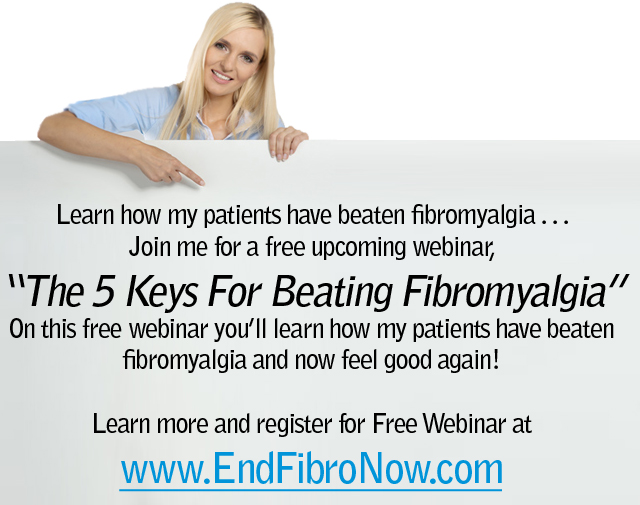 I look forward to sharing valuable information to help you in your quest to feel good again. You can ask questions or simply call in and listen to the program.
I look forward to sharing valuable information to help you in your quest to feel good again. You can ask questions or simply call in and listen to the program.
I look forward to your questions this evening. I’m a board certified chiropractic physician, board certified nutritional specialist. I’ve been in private practice for 26 years and I have specialized in treating fibromyalgia for the last 18 years. At one point, I owned a very large integrative medical practice on the campus of Brooklyn Hospital here in Birmingham, Alabama where I had 5 medical doctors who worked for me.
In 2003 the first edition of my book, Treating and Beating Fibromyalgia and Chronic Fatigue Syndrome is first came out in print. It’s now in its 5th edition and available in most bookstores throughout North America, including Amazon.com, Barnes&Noble.com and most libraries. www.getfibrobooks.com or visit Amazon.com http://www.amazon.com/Treating-Beating-Fibromyalgia-Chronic-Syndrome/dp/0972893873
For the last 7 years, my practice has evolved to where I primarily work with patients by phone. I would say probably at this point 99% of my practice is working with patients by phone, patients throughout North America and overseas.
Unfortunately once you get the diagnosis most doctors will tell you that you just have to learn to live with it. I’m on a mission to change that because I really feel like that is a disservice that’s being done in the fibromyalgia community. The reason why doctors in the conventional world tell you that once you have fibromyalgia you just have to learn to live with it, is because they have nothing for you. That’s just the way it is.
Traditional medicine, drug therapy alone is a dead end for fibromyalgia … That’s why after the last 20 years of trying to do it that way, doctors have come to the conclusion that once you get fibromyalgia, you can never feel good again. There’s nothing further from the truth. You can feel good again, but you have do it with a different approach other than just using conventional drug therapy.
In fact, the only way you can feel good and stay feeling good is you have to get healthy. That means different things for different people. It sounds simple but it’s actually very complicated. That’s why my book is 564 pages. There’s a lot to it that has to happen, to allow someone with a multitude of different conditions and illnesses that we call a syndrome called fibromyalgia … we have to find the root causes of these symptoms, because symptoms are nothing more than warning signs.
Yes, you have chronic, diffuse, achy, sometimes debilitating pain but what’s causing that pain? It’s not fibromyalgia. Fibromyalgia is just a name, it doesn’t cause anything. You have fatigue; many of my patients can’t get out of bed each day. I have patients that I’ve worked with, many of whom have shared their stories on this conference call and on my website who were bedridden for months, some patients for years before they started working with me and were able to uncover the root causes of that low energy and fix those causes … not just saying that they have fibromyalgia and that’s why they’re tired.
The challenge with having fibromyalgia is you have to find a doctor who number 1 believes in fibromyalgia; unfortunately there are still many doctors who don’t. Number 2, you have to find a doctor who’s going to do more than try to treat your symptoms with medications, or with over the counter supplements. You have to find a doctor who’s actually going to do the detective work, find out where you’re broken down and then work with you to help you not only feel good but to stay that way; to feel good and to get healthy so you stay that way.
I’m privileged tonight because like most nights on this call, I get to have patients that I’ve been working with who have worked hard to get where they’re at and to regain their health. I’d like to welcome those patients on here tonight:
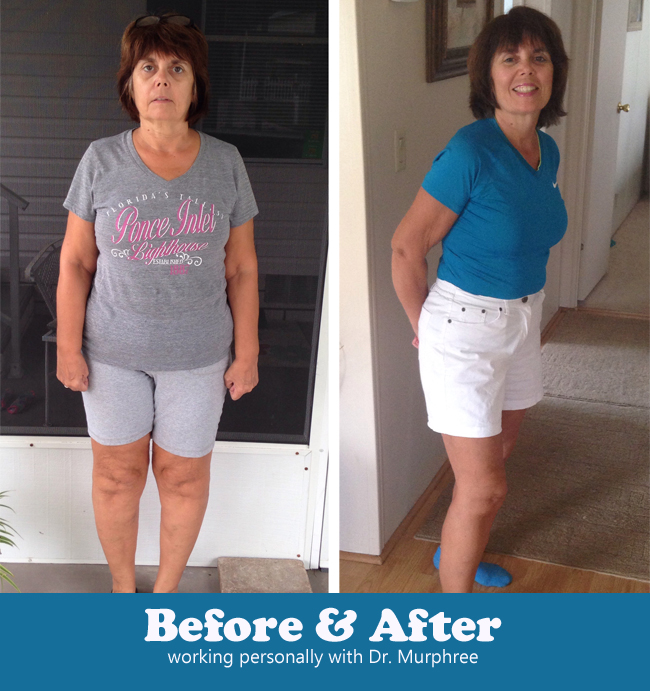
Debbie From Ocala Florida Shares Her Fibromyalgia Success Story
Dr. M: Hi Debbie, thank you so much for joining me. I really appreciate you taking time to share your story with us.
Debbie: I’m so glad you asked me.
Dr. M: Debbie, tell me a little bit about you and your fibromyalgia. Can you tell us what it was like before we started working together?
Debbie: It was pretty painful days. I think I had it for many years. I had back surgery in 2000 and that’s when it all started, but I was in many years of denial. I kept trying to go and exercise, lose weight and it was just an up and down battle. The weather was really affecting me, I used to live up north. When the cold weather hit, it was really hard for me to keep on going. We came to Florida a lot of times on vacation and I just decided that that’s where we needed to move. We decided that because of the heat, so we moved here in 2012. I was doing pretty well then; moving of course was quite stressful, but I was doing pretty well. Then I took a job that was housekeeping at a big golf club, and it wasn’t very long before I couldn’t get out of bed. I enjoyed the job but after just a few weeks, I couldn’t get out of bed one morning. I went to a university that they had on the TV about coming in for trials for fibromyalgia. I didn’t really understand how it worked. I thought maybe I can get some help, but really it’s a clinical trial that they’re checking to see about the medications or whatever they want to try on. The first one I tried Savella … I’m not someone that wants to take medicine, but I did do it for a while and I felt like it wasn’t doing me any good so I asked them to take me off that. Then they called me a few months later for another trial and I thought I’ll go ahead and try it. This was for injections. It was very painful and I decided that was not for me either.
I exercised, I lost weight, I cut way back on sugar and I felt better. I was walking and I lost weight then. I was doing pretty well till this last summer and then I got a big flare. I had a stressful year, it was just one thing after another. Then I moved in this community in March of last year and I decided I was going to do the exercise classes, the water aerobic classes, walking … I think you can overdo it. I overdid it on exercise and I ended up in bed. I had a few days where I couldn’t get up. I was laying there one morning in bed, I have a little tablet and your website kept coming on my Facebook page I guess because I had looked up fibromyalgia online. One day, I decided I’m going to look into this. I researched you, listened to your audios and read as much as I could on the website for probably 3-4 weeks and then I said this is it. This has got to be it, and I am so glad that I did it.
Dr. M: I’m glad you did it too.
Debbie: I wasn’t getting sleep either. That was the first thing you told me, that that’s what had to be changed first.
Dr. M: Yeah, let’s talk about that. Before we started working together, tell us what was a typical night for you as far as sleep? I think so many people with fibromyalgia struggle with their sleep. I’d be curious to know if they’re any worse than you were, and you were pretty bad.
Debbie: It was kind of odd because there would be nights that I just couldn’t go to sleep till 2-3 in the morning, I would sleep a couple of hours and then I would be awake. I might sleep till 5 if I went to sleep at 2. But then there were other nights where I could go to sleep earlier, but wake up at 3AM and I just couldn’t go back to sleep. It was usually a lot to do with the pain … I can’t explain why but that’s the kind of night I would have. After you’ve had a couple of weeks of those, you’re just so tired. You’re walking around all day in just a fog, and then the brain fog really came into play. I couldn’t concentrate on anything, I couldn’t remember anything and that was due to the sleep I think … the lack of, should I say.
Dr. M: Yeah, it’s exhausting. It drives your pain levels. When you’re not getting that deep sleep, you increase your inflammatory chemicals by 40% so it’s a vicious cycle. Only people who have fibromyalgia really understand this. You get to where you’re so exhausted that you’re almost too tired to sleep. For those people who don’t have fibromyalgia, that sounds weird but you’re so exhausted that when you get ready to go to bed, you’re almost anxiety-ridden because you know that it’s probably going to be another sleepless night.
Debbie: Yeah, I would get severe anxiety. Am I going to go to sleep early and then wake up and be up for hours, or is it going to be the other way tonight? Am I not going to get any sleep? I don’t have a job at the moment and I wonder how people that do, they have to get up and go to work … I know I did that for many years. I had times like that when I had bad flares and I had to go to work.
Dr. M: Tell me about your sleep now. How’s your sleep now since we started working together?
Debbie: I’m always getting 7-8 hours. I might have an occasional night, maybe once every 3 months … I had one the other night where I woke up and was awake. It wasn’t because of pain, I just got thrown off with something. But you know what, once in every months is way better than every night. I’m sleeping 7-8 hours, I‘m dreaming because I couldn’t remember dreaming for the longest time. I don’t know of what significance that is, but I feel like I’m in a deeper sleep and I’m really rested when I wake up. It’s amazing to wake up and say, “Hey I don’t have any pain.” That is miraculous.
Dr. M: The people that are listening are thinking, oh my gosh if only I could sleep through the night and feel refreshed … but you can. It’s not everybody because everybody is different, but don’t let somebody tell you that just because you’ve got this thing called fibromyalgia, that you’re never going to be able to sleep good again. If you’re working with the right person and they really work with you, there’s no reason why you can’t sleep and feel refreshed. You’re a living testament to that. We had to try some different things but you did real well. Tell me about your pain because your pain, like a lot of my patients, it was all over pain. You have pain in multiple areas and it really limited what you were able to do in a day. Is that correct?
Debbie: Oh yes. I know for the longest time it was mostly in my hips and my legs. My legs were really bad. When I would come to Florida to visit, we would always stay at the beach. It sounds so silly but I would go down to the beach, I would sit in the hot sand and I would dig little trenches for the calves of my legs in that warm sand. The heat really helped me. I would sit there for hours, I called it sand therapy. It felt so good and then I would take a long hot bath. It was just my legs and my hips, but this last summer it was all over. My arms just felt like they were so heavy that I could hardly lift them. There was so much pain in them and I thought, I never had pain in my arms before. There were times where my feet were the same way. I guess off and on through the years I’ve experienced a lot of foot pain and then it would go away for a while, but I don’t know what I did to trigger it. Now I don’t have any of that. I’m happy to say that I haven’t had foot pain for a couple of months now, so I’m really happy to be relieved. I still have some neck pain but that’s because of herniated discs there. That’s something that I work with. Now I can do all my exercises and my water aerobics. I was getting to the point where I couldn’t do any of my exercises all summer long last year. My friends that I walk with would call me, I’d say “Sorry, I’m in bed. I can’t come.” They were very patient with me. I would start to walk with them and I might have to turn around and go home, because I was in so much pain. They would say okay, and now they’re like “Gosh you’re so energetic, we can’t stand it.” They were really patient with me but now they just tell everybody in the neighborhood when we’re walking, “Do you remember her last year? She could hardly keep up with us.”
Dr. M: That’s great. I think that’s probably one of the most frustrating things about fibromyalgia, is that you start to lose your friends, your family and relationships. People don’t understand but fortunately you had some good friends that were real accepting, but a lot of people find that they don’t know if it’s going to be a good day or a bad day, and they just withdraw further and further from life. Oftentimes they almost become a hermit and they just don’t want to interact with anybody, because they don’t feel good. They don’t want to be able to use what little energy that they have to do anything socially, because they know that oftentimes if they try to do that they have more pain or they’ll feel more lethargic the next day … whatever it is. I think it’s wonderful that you’re able to get back and enjoy the companionship that you weren’t able to now.
Debbie: I had a lot of days when I would be laying in bed and I’d be in tears, because I would say this isn’t me to refuse to do this or to go somewhere with my friends. It wasn’t me but I had to do it, because I know I wasn’t going to have enough energy to do it. Even a shopping trip or something, I couldn’t do it.
Dr. M: Tell me about your headaches. How often were you having the migraine headaches?
Debbie: I’ve had them as long as I can remember. It was usually in different seasons when the weather would change. Last summer, I was having a couple a week … bad ones that would last quite a long time, a couple of weeks. I just kept thinking I don’t understand, the weather is not changing. About the same time, my arms got so bad and my headaches just got worse and worse. It didn’t seem like much would help them. I used to be able to take something and it would help them, but the last summer they wouldn’t go away. I think I’ve only had one since I’ve been on the program.
Dr. M: Yeah, you’ve done great. I’m an old migraine patient myself and I hate to jinx anybody, but it’s so rewarding to hear patient after patient after patient share that they had these migraines – sometimes debilitating migraines, and they just go away. It didn’t happen with everybody but fortunately knock on wood, it was most patients that I work with because we’re looking for the underlying reasons for the problems, including migraine. In your case, we did some allergy testing that was helpful. We also found that you had a problem with your thyroid that no one had ever picked up.
Debbie: Right, I had done the blood tests and it never showed the thyroid was a problem. My mother always had a thyroid issue and I really suspected that. My Vitamin D was really low and now it’s above level I think.
Dr. M: Yeah, it’s doing great. It’s at 79 and you want it somewhere between 50 and 100. Who would have thought that anybody living in South Florida would have a low Vitamin D level, but they do. You’ve got to test for these things to be able to find them. The other thing was you did really well on the diet. The diet in the beginning was a bit of a challenge for you, because you had to combine both the allergy diet and the anti-inflammatory diets. You did both of them but you did real well.
Debbie: It was pretty challenging at first, but I just kept saying I’m going to do this. I lost between 25 and 30 pounds. My inflammation number was really high on the blood test.
Dr. M: Right, your CRP.
Debbie: I had reduced my sugar down before and lost 25 pounds and felt better, so I knew it was the inflammation. I just knew that the pain was going to go away if I did what I was supposed to. That’s what keeps me going now and keeps me maintaining this … is that piece of cake or ice cream worth the pain? No, it’s not worth it to me. Something that I’m allergic to, it’s not worth it. Every once in a while on a special occasion, a small amount I can probably get away with.
Dr. M: Absolutely, you want to be able to do those things and enjoy them. I think what my patients learn going through the program with me, is what we eat on a daily basis or a weekly basis affects how we feel. It affects our health. Once you learn that, then you start to realize that you’ve got control over your health. It’s not a doctor, it’s not pills … you realize that you can feel better if you eat according to what’s right for you, and you can feel worse if you get too far off that. I think that’s real empowering.
Debbie: When I was having so much pain, I was an emotional eater so I would eat comfort food because I was in pain. I was seeking comfort with that, but it was actually making it worse. Now after reading your food and following all your protocols, I feel educated now. Like you said, you have the power and now I have the control.
Dr. M: Do you ever see yourself going back to where you were a year ago?
Debbie: No, I can’t imagine that now. I feel like I climbed such a big hill. I just turned 60 and I don’t know what I would have been like turning 60 years old, if I had still been in the same condition. Now I want to get out, I want to live life and meet new people, travel … I want to do all that and now I feel like it’s possible. Before, there wouldn’t have been any way. If I find something that I can tell it bothers me or it felt like I’ve over-eaten that day, then I’m very cautious and careful. I just do the things that I know make me feel better. I’m not going to go back. When you see my before and after pictures, I didn’t realize how much pain was on my face and so much happiness on the second picture. It’s actually there in the pictures, it shows. Now I feel like I can live a quality life.
Dr. M: What would you say to someone that says there’s no way that you can feel good again with fibromyalgia, and you certainly can’t do it without drugs? Obviously you have because you’re not taking any medications. Now you’re doing it all with over the counter supplements that anybody can buy anywhere. What would you say to those people who doubt that you can overcome fibromyalgia?
Debbie: I’ve met a couple of people who are in the community, I’ve talked about it and I’ve already lent my book out a couple of times. That’s what I say, read this … I give them the website because it really is possible. I didn’t believe that I could do it, I didn’t believe that I could be on such a restrictive diet over Thanksgiving and Christmas, but I know anybody can do it. If I did it, anyone can do it and it is well worth it. I’m so happy that there’s a Dr Murphree that’s helping us. I’m very grateful to you. I had my doubts before I met you or talked to you. I would encourage them to really read up on it and give it a try. I have no regrets whatsoever.
Dr. M: I’m so excited for you. I’m glad you’re back out in the community and involved. You’re not somebody that I would ever imagine just sitting around the house, you don’t have that personality. I’m so glad you’re active again, I’m really happy to hear that.
Debbie: The weather’s so nice here, I like to be outside so I don’t want to be inside. I want to be outside. Thank you for everything that you and your staff have done. I’ve really enjoyed the journey here.
Dr. M: You’re part of the family now, so I look forward to hearing from you, working with you and making sure you stay doing as well as you’re doing. I know you will and I look forward to talking to you soon. I’m so proud of you.
Debbie: Thank you very much doctor.
Dr. M: Have a great night.
Debbie: Thank you, you too.
Dr. M: As you got to hear, that was Debbie from Florida. Interesting about her is that when she started, she was not on any medications. In a lot of ways, that made it so much easier for me. Her results probably were faster than the majority of my patients ha I work with, and I think a big part of that is because she wasn’t on half a dozen to a dozen drugs. Most of the patients I’m working with are on numerous medications, which complicate what we need to do. It’s not that I’m anti-drug, it’s just that for fibromyalgia drug therapy alone at least long term is not an answer. It’s actually a hindrance. For most of the patients, I have to work with them to get them off these medications that are causing a lot of the symptoms that they attribute to fibromyalgia.
Join Me Every Week For My Free Treating and Beating Fibromyalgia Facebook LIVE @ 6pm CST
These patients and hundreds of others who’ve worked personally with me have in fact beaten their fibromyalgia. You can read or listen to their stories by clicking the link below:
|
|


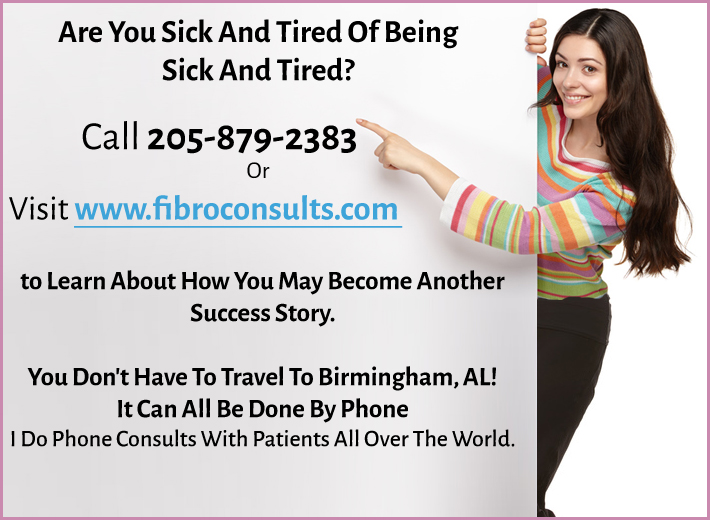
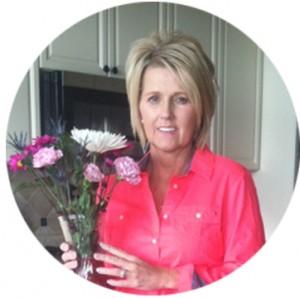
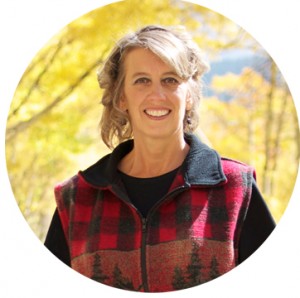
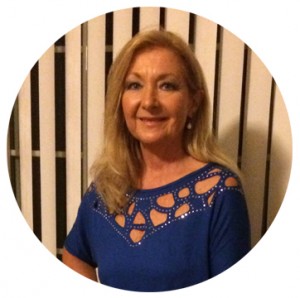







Leave a Reply
Want to join the discussion?Feel free to contribute!